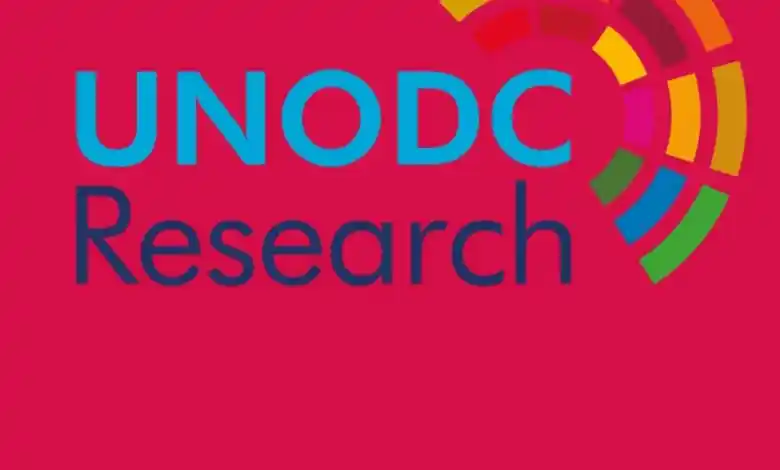UN Survey: GHc 5 billion bribes paid to public officials in 2021, bribery prevalent with the educated

A total of five billion Ghana cedis (GHc5,000,000,000.00) was paid in bribes by Ghanaians from all walks of life to public offficials essentially to speed up service delivery to those offering the bribes, a United Nations Office on Drugs and Crime (UNODC) report has disclosed.
The survey which has its preface signed by Government Statistician, Samuel Kobina Annim and Deputy Commissioner of the Commission on Human Rights and Administrative Justice (CHARAJ), Richard Quayson, is entitled “Corruption in Ghana: People’s Experiences and Views,”.
It also points out that bribery is most prevalent among highly educated people compared to the not so educated and younger people are more likely to pay bribes than older people.
The 137-page report has an executive summary, and six (6) chapters. Chapter one looks at the scope of bribery in Ghana, chapter two and three focusses on who takes bribes and how bribery works in the country.
The fourth chapter is on Gender dimensions of corruption and the last wo chapters, five and six are essentially on others forms of corruption and the methodology used by the researchers to reach their conclusions.
Scope of bribery
On the scope of bribery in Ghana, the report indicates that “more than 8 out of 10 adults in Ghana had at least one contact with a public official in 2021. Some 64.8 per cent interacted with those public officials more than once, indicating that interaction between the public and those who are employed in Ghana’s public institutions is widespread and well-established”.
“Out of all adults who had at least one contact with a public official in 2021, 26.7 per cent paid a bribe to a public official, or were asked to pay a bribe by a public official but refused to do so
“With a prevalence of bribery of 29.9 per cent, people aged 25–34 are the age group most vulnerable to paying bribes. The prevalence of bribery decreases steadily to 17.6 per cent among those aged 65 and over, while among the youngest adult age group (18–24) it is 23.9 per cent” the survey discovered.
“With a prevalence of bribery of 40.6 per cent, people with a master’s degree and/or a bachelor’s degree are much more likely to have been asked to pay a bribe than those with no formal education.
“According to the survey, people with the highest level of (tertiary) education were 1.7 times more likely than people with no formal education to have paid a bribe, or been asked to pay a bribe but refused to do so, when in contact with a public official” the survey further disclosed.
Who takes bribes
In the area of who takes bribes the most in Ghana, “the survey results indicate that the prevalence of bribery in relation to police officers is considerably higher than in relation to any other type of public official in Ghana, at 53.2 per cent”.
“Ghana Immigration Service Officers and GRA customs officers come next, at 37.4 and 33.6 per cent, respectively. Elected government representatives are bottom of the list, at 2.9 per cent” the survey indicated.
Setting bribery in motion
With regard to how the acts of bribery are set in motion in different ways in the country, the survey found that “in Ghana, 6 out of 10 bribes paid to public officials are requested directly by those officials”.
This is according to the survey in “an indication that bribes are both common and expected and underlines the bargaining power of public officials, whose position enables them to solicit a payment in exchange for the promise of providing a public service that should be rendered upon request and, on occasion, totally free of charge”.
“Bribes paid to public officials come in different forms. Almost 9 out of 10 of those paid in Ghana are in the form of cash (84.8 per cent). Food and drink and the exchange of a public service for another service are far less common, although in the country’s rural areas (17.8 per cent) more bribes are paid in the form of food and drink than in its urban areas (10.1 per cent).
“Cash bribes are 1.5 times larger in urban than in rural areas of the country, with the national average bribe amounting to Ghanaian cedi 348. Given that roughly 17.4 million bribes were paid in Ghana in 2021, a total of roughly Ghanaian cedi 5 billion is paid in cash bribes to public officials on a yearly basis in Ghana, or the equivalent of 32.9 per cent of the 2021 budget of the Ministry of Education” the survey disclosed.
“Almost half of all bribe-payers paid a bribe to either speed up or finalize an administrative procedure in 2021 (33.6 per cent and 10.8 per cent, respectively). This, and the fact that the majority of bribes are directly requested by public officials and are paid in advance of a service, suggests that bribes are paid because people seeking a service are informed by a public official, either implicitly or explicitly, that a procedure will not be processed without the payment of a bribe.
“Just 3 out of 100 people who paid a bribe in Ghana in 2021 reported it to an official or an unofficial institution. The two most common reasons cited for not reporting are that bribery is simply a common practice and people think it pointless as nobody would care” the survey further reads.
The gender divide
The survey also pointed out that “in 2021, one third (34.1 per cent) of all men who had contact with a public official either paid a bribe or were asked to do so but refused, while this was the case of one fifth of women (20.7 per cent). Moreover, women in Ghana are less likely to engage in bribery than men irrespective of where they live, their age, educational background and employment status”.
“The survey data indicate that the share of male public officials who solicit or take a bribe (25.2 per cent) is roughly twice that of female public officials (13.1 per cent).
“Male public officials are more likely to solicit or take bribes from men than from women, with 61.2 per cent of all bribes resulting from interactions with men. Female public officials, on the other hand, are just as likely to solicit or take a bribe from men as from women” the UN report disclosed.
“Sexual corruption – the exchange of sexual favours or acts of a sexual nature in place of monetary bribes – disproportionately affects women in Ghana, with women being roughly twice as likely as men to be asked for sexual favours when interacting with public officials.
“In 2021, 2.6 per cent of women in Ghana were asked for sexual favours when interacting with public officials, which is likely an underestimate given the social stigma that surrounds this topic” the report further disclosed.
Methodology used
The data presented in this report were collected in the 2021 Ghana Integrity of Public Services Survey (GIPSS) a project funded by the German Federal Ministry of Cooperation and implemented by UNODC and the Commission on Human Rights and Administrative Justice (CHRAJ) in collaboration with Ghana Statistical Service (GSS).
The universe defined for the main survey, is the adult population, living within individual households in Ghana. The survey targeted a total of 15,000 interviews from a nationwide representative sample across the 16 administrative regions with people aged 18 and older.
The sampling methodology adopted was a three-stage stratified cluster sampling. Stratification was achieved by dividing the national frame into the 16 regions and further separating the regions into 234 administrative districts.7 Each district was divided into urban and rural areas resulting in 468 sampling strata. The sample selection was done independently in each sampling stratum by a three-stage selection method.
The Primary Sampling Unit (PSU) was the Enumeration Areas (EAs) and the second stage was the list of households as recorded in the 2021 population and housing Census Listing exercise. The third stage was the selection of an adult within the selected household.




